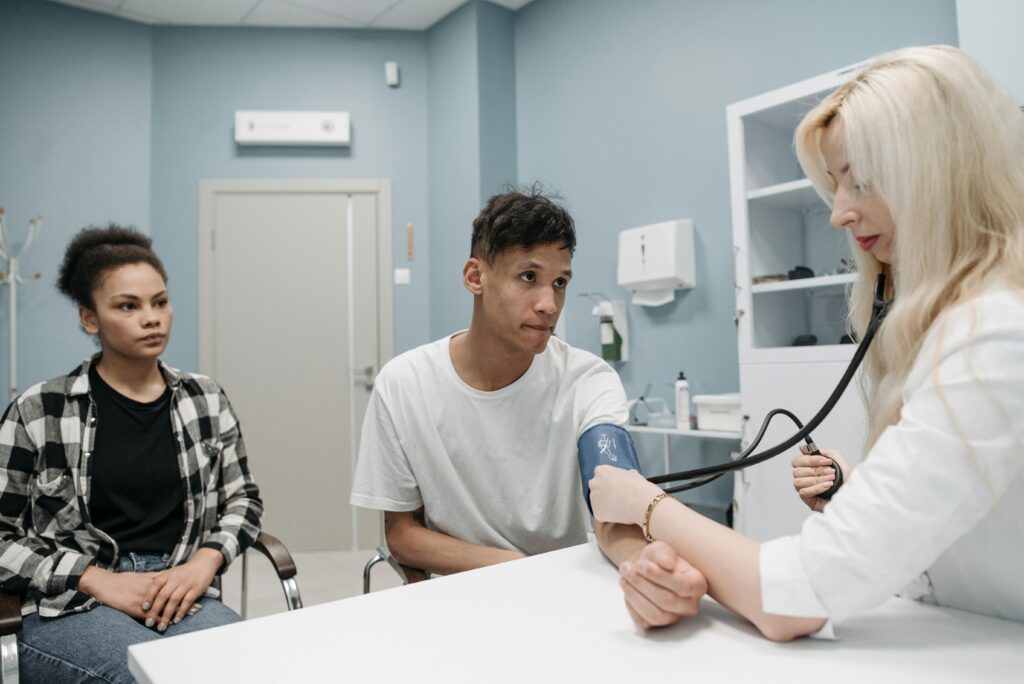Dear friends,
It’s clear that the rule of law in the United States is under threat. Almost every day we see judges maligned in public, government coercion of law firms, and overt disregard for court rulings—often by the country’s most powerful federal executives. Now we see Immigration and Customs Enforcement officers raiding workplaces to arrest longtime employees and National Guard combat teams and U.S. Marines deployed against civilian protesters in Los Angeles. Our highest leaders increasingly treat law and due process as optional.
What’s less obvious but equally true is that this threat has profound implications for the health of individuals and the health and integrity of our institutions, including health care and social services.
As the slashing of Medicaid, food and housing support opens chasms of inequity in meeting people’s basic needs, we are also likely to see widening gaps in access to justice. The people left without pathways to protect their rights are likely to be low-income community members navigating bread-and-butter legal issues that shape their everyday lives. The patients we serve today are the same people who will need legal support tomorrow.
HealthBegins has worked for years to support access to justice, with partners such as the National Center for Medical-Legal Partnership(NCMLP) and Frontline Justice. That work has shown us vividly that health care can and should play a pivotal role. And the need to seize that role is more critical now than ever.
Here are several kinds of actions that healthcare institutions can take, pressing levers at multiple levels of influence.
-
Strengthen programs and services. Disadvantaged communities have always faced disproportionate obstacles to addressing health-harming legal needs. The federal Legal Services Corporation reports that low-income Americans do not get any or enough legal help for 92% of their substantial civil legal problems. As federal and state budgets are slashed—and as public policy increasingly privileges those with power over those without it—we expect unmet legal needs only to increase. And these inequities have real implications for health. It’s time for health care to lean into medical-legal partnerships (MLPs), as HealthBegins has done in partnership with Kaiser Permanente and NCMLP, and other innovative models to increase access to justice for low- and middle-income families. Another promising model is Community Justice Workers, frontline health- and social-service workers trained to provide legal help that people can’t get elsewhere.
-
Inform policy change. Frontline workers know that legal needs affect patients’ and communities’ health, and that legal assistance can make an impact. To scale solutions, we need better systems to collect and share data on unmet legal needs to inform policy at a local, regional and state level—to elevate needs that appear every day on the ground. Health information exchanges (HIEs) can play a role here. In turn, data-supported advocacy can help people find more opportunities to access justice and help leaders move upstream to consider the broader patterns of injustice that put them in harm’s way. Multisector place-based collaboratives focused on health and social needs, such as Accountable Communities for Health, now need to create seats at the table for legal aid, advocacy, and frontline justice groups.
-
Speak up to protect the rule of law. The institutions under threat now, from courts to Congress to federal departments, may appear distant from the everyday work of health care but are in fact intimately connected. We must all leverage our influence to stand up and protect these institutions’ integrity. Just as we employ lawyers to defend the right to health, so too must we protect the rule of law. Health professionals can help, for example, by joining HealthBegins’ Health Equity Mobilization Network, contributing to the National Legal Aid and Defender Association, or engaging in a menu of actions identified by Protect Democracy.
Last month, I attended the Equal Justice Conference in San Francisco to discuss strengthening partnerships in the civil justice system to provide legal services to low-income people. American Bar Association President Bill Bay, whose own organization has challenged the Trump administrationfor canceling grants in retaliation for public dissent, spoke about the need to defend the rule of law. Bay had a message for all of us, including those in health care, public health and the social sector: “There is never a wrong time to stand up for what is right.”
Best,

Rishi Manchanda, MD, MPH.
Featured content
Providing Health Equity for Immigrants in a Time of Crisis
This moment presents an opportunity for healthcare leaders to harness the national attention focused on immigrant care to build investments, policies, and protections to improve care for these communities long-term.
HealthBegins Brief: Addressing Climate Health Inequities With The Community Health Needs Assessment
This HealthBegins Policy and Practice Brief invites every healthcare organization to immediately begin addressing the impact of climate change on health at the community level and with community participation.
Immigration Enforcement in Healthcare Settings: How to Prepare and Respond
Many of our healthcare partners are asking how they should prepare for potential ICE encounters on their premises and respond in the interim to concerns among patients and staff. These questions, answers, and resources provide some guidance.



